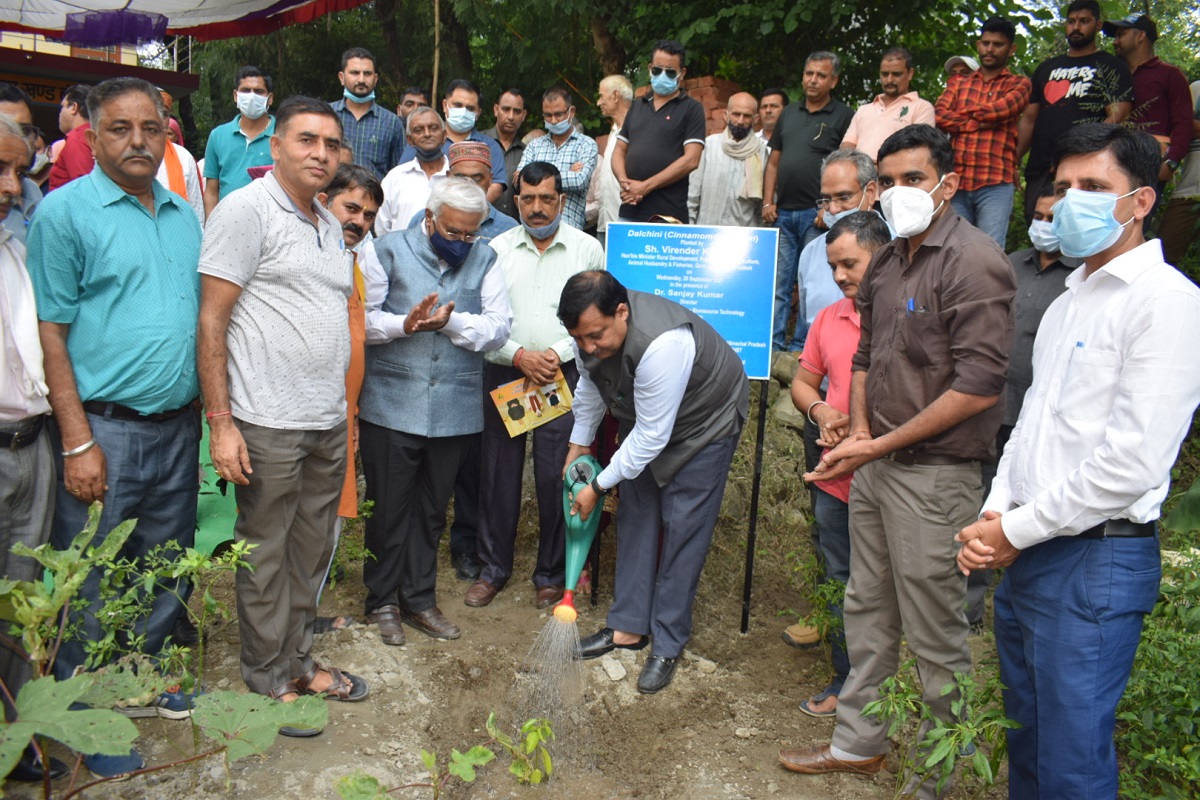Himachal Pradesh government has successfully rolled out the first pilot project for Cinnamon cultivation in five districts of Una, Hamirpur, Bilaspur, Kangra and Sirmour which will pave the way for its commercial cultivation in lower belt of state.
At present, some species of Cinnamomum genus are naturally grown wild in forests and it thrives well as a forest tree at 300-350 meter above sea level, state Agriculture minister Virender Kanwar said.
Advertisement
“HP, with the cultivation of Cinnamomum Verum also called sweet wood has become the first state in India to have organized cultivation of Cinnamon.
The first sapling of cinnamon verum, one of the earliest known spices, was successfully planted in Kholin village of Una district recently under the aegis of Agriculture department and CSIR’s Institute of Himalayan Bioresource Technology (IHBT) on pilot basis.
The project has been conceived by CSIR-IHBT and is being implemented in association with ICAR’s Indian Institute of Spice Research, Calicut, Kerala,” he added
A target has been fixed to train around 1,000 farmers in cinnamon cultivation in the lower elevations of the state by organising training camps/farm visits.
In the initial phase, as many as 600 to 700 plants of true Cinnamon have been planted and a target has been fixed to distribute 40,000- 50,000 plants every year free of cost to the farmers to propagate the cinnamon cultivation in the region .
A total of around 200-hectare area will be brought under cinnamon cultivation in the state in the next five years and on an average 40 hectares area will be brought under the cinnamon cultivation each year in the five districts, Kanwar said.
He stated that the plant can be successfully grown in hot and humid climatic conditions with moderate temperature and rainfall of 1,750-3,500 mm per annum.
The harvesting starts from the 4th or 5th year after plantation and it can provide a yield of 125 kg per hectare after 4 years while 250 kg per hectare after 10 years onwards.
Harvested produce is called ‘Quill’ which is made by rolling the peeled bark and joining several of them together to get a pipe-like structure in the required length.
The farm scientist of CSIR-IHBT Palampur would provide the technical know-how and update the skills of the farmers involved in the pilot project in cinnamon cultivation in the state while the expertise of national-level agencies will be utilized at a later stage.
Cinnamon or sweet wood is one of the oldest known spices and it’s commercially cultivated in the states of Kerala, Tamil Nadu, and Karnataka. The dried inner bark of Cinnamon is used as a spice and this tree can reach up to a height of 6 to15 meters on full growth. It has very good demand in local as well as in the international markets due to its health benefits.









